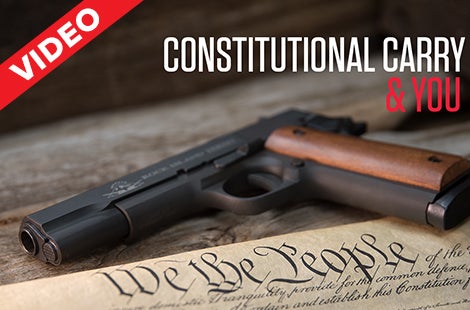Concealed Carry
Concealed carry is the practice of carrying a concealed weapon on one’s person in public. Concealed firearms can be carried on a person’s body, typically in a holster or off-body in a purse, backpack or other specialized concealment accessories and garments. (No matter the carry rig, please always ensure that it covers the weapon’s trigger guard to prevent negligent discharge.) Some states limit concealed carry permits to handguns, whereas others allow the carry of concealed weapons which may include electronic weapons, billy clubs and knives.
There is no federal law concerning the concealed carry of firearms. All 50 states have laws allowing individuals to carry certain concealed firearms in public. State laws vary from quite restrictive (Hawaii) to unrestricted (states that have adopted constitutional or permitless carry, such as Vermont). States also vary in terms of whether concealed carry permits are issued at a local level or by the state.
Issuing states use a variety of terminology when describing concealed carry permits or licenses. Some of the most common terms are:
CCW — Concealed Carry Weapon
CCP — Concealed Carry Pistol
CCP — Concealed Carry Permit
CCL — Concealed Carry License
CPL — Concealed Pistol License
CHP — Concealed Handgun Permit
CHL — Concealed Handgun License
CWP — Concealed Weapons Permit
LTC — License to Carry
LTCF — License to Carry Firearm
Tim Schmidt Discusses the Rise in Concealed Carry Permit Holders in 2018 on The Lars Larson Show
Constitutional carry is the ability to carry a firearm without restriction from the government. In a constitutional carry state, there is no licensing or training required to legally carry a firearm. Some states with permitless carry have implemented certain policies that restrict the method of carry or who can carry. Some require you to be 21, while other states require you to be a resident of that state or only allow concealed or open carry.
Related Articles From the USCCA Blog

Ask Ed: Concealed Carry FAQs — August 2020
Ed Combs — August 24, 2020
The information contained on this website is provided as a service to USCCA, Inc. members and the concealed carry community, and does not constitute legal advice. We make no claims, representations, warranties, promises or guarantees as to the accuracy, completeness or adequacy of the information disclosed.
